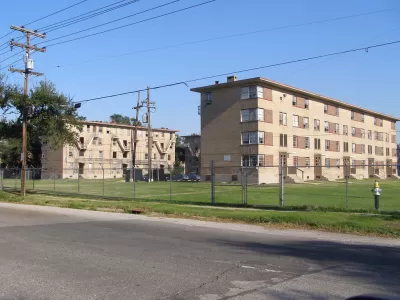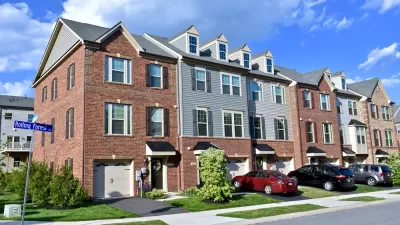The New Orleans Housing Authority has approved reforms to policies on public housing for ex-convicts in an attempt to stem homelessness among the newly released and to foster better reintegration.

Once out of prison, ex-convicts are faced with a series of hurdles to reintegrate back into society. The New Orleans Housing Authority (HANO) is attempting to ease part of this transition by revising policies that excluded those with criminal records from taking public housing. Michelle Chen reports in The Nation that HANO's reforms, along with reforms at the national level in the Department of Housing and Urban Development (HUD) will revisit how we treat those who have served their time. Although, as Chen notes, the policy changes will leave intact some restrictions for people on sex-offender registries and for those found manufacturing methamphetamine in federal housing.
As homelessness, prison, and mental illness overlap as reinforcing crises, housing could mean the difference between rebuilding your life and sleeping rough. One 1990s survey of homeless people showed that “18 percent had been incarcerated in a state or federal prison,” and about half had spent at least five days in jail.
Families currently in public housing face risks of losing the housing if they welcome back the newly released to live with them, as one member of the public testified, "I have a son coming home, and he’s going to need somewhere to stay—and guess what, I’m going to take a risk with my son. I will hide him on the roof. I’ll hide him under the bed. But I’ll have him here."
FULL STORY: In New Orleans, Criminal Justice Meets Housing Justice

Maui's Vacation Rental Debate Turns Ugly
Verbal attacks, misinformation campaigns and fistfights plague a high-stakes debate to convert thousands of vacation rentals into long-term housing.

Planetizen Federal Action Tracker
A weekly monitor of how Trump’s orders and actions are impacting planners and planning in America.

In Urban Planning, AI Prompting Could be the New Design Thinking
Creativity has long been key to great urban design. What if we see AI as our new creative partner?

Massachusetts Budget Helps Close MBTA Budget Gap
The budget signed by Gov. Maura Healey includes $470 million in MBTA funding for the next fiscal year.

Milwaukee Launches Vision Zero Plan
Seven years after the city signed its Complete Streets Policy, the city is doubling down on its efforts to eliminate traffic deaths.

Portland Raises Parking Fees to Pay for Street Maintenance
The city is struggling to bridge a massive budget gap at the Bureau of Transportation, which largely depleted its reserves during the Civd-19 pandemic.
Urban Design for Planners 1: Software Tools
This six-course series explores essential urban design concepts using open source software and equips planners with the tools they need to participate fully in the urban design process.
Planning for Universal Design
Learn the tools for implementing Universal Design in planning regulations.
Gallatin County Department of Planning & Community Development
Heyer Gruel & Associates PA
JM Goldson LLC
City of Camden Redevelopment Agency
City of Astoria
Transportation Research & Education Center (TREC) at Portland State University
Jefferson Parish Government
Camden Redevelopment Agency
City of Claremont




























